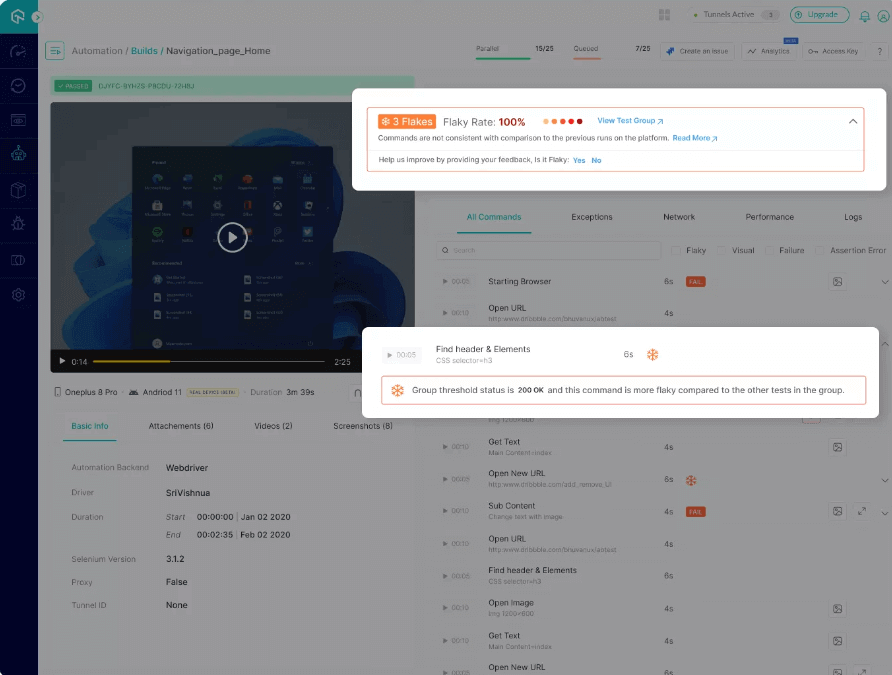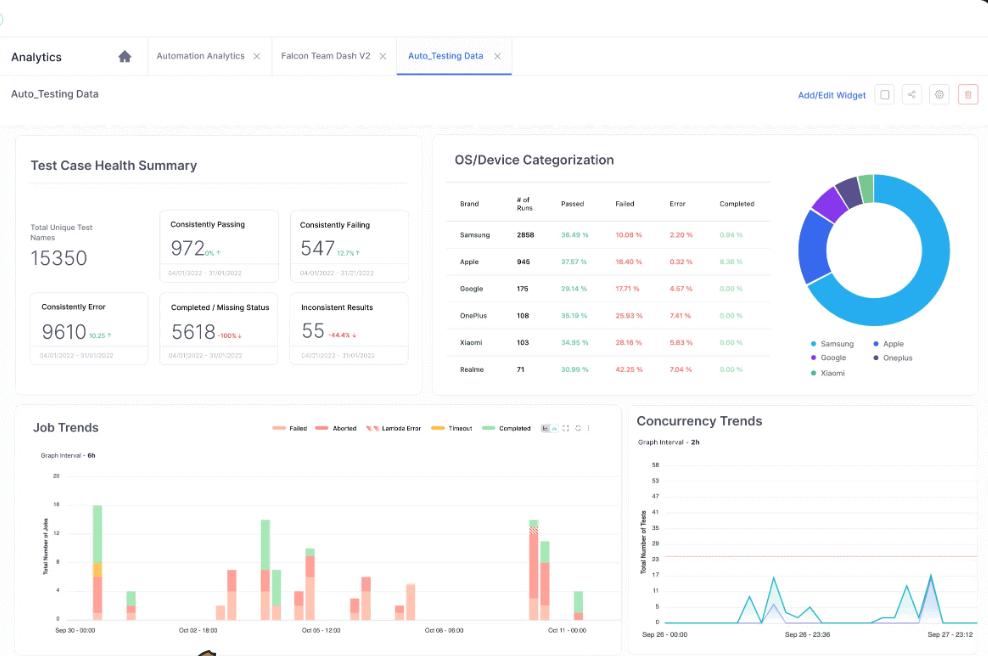Unlocking AI-Driven CI/CD Success: Mastering Test Observability for Seamless Deployment
Anindya Mishra
Posted On: September 27, 2023
![]() 26107 Views
26107 Views
![]() 5 Min Read
5 Min Read
Have you ever thought why ensuring observability in AI-powered Continuous Integration/Continuous Deployment (CI/CD) pipelines is essential for testing success?
In recent times,Continuous Integration and Continuous Deployment (CI/CD) pipelines have become essential for delivering high-quality software faster than ever before. CI/CD workflows automate the process of building, testing, and deploying code changes, ensuring that software updates can be released quickly and with confidence.
However, as CI/CD pipelines become increasingly complex and the pace of software development accelerates, it’s crucial to have comprehensive visibility into the testing phase to ensure the seamless deployment of your applications. This is where Test Observability, powered by AI, enters the picture.
In this blog post, we’ll explore the importance of Test Observability and how it can be a game-changer in achieving CI/CD success.
The Challenge of Traditional Testing
Traditional software testing methods often involve a set of predefined test cases that are executed on a fixed schedule. This approach can have its own limitations, for instance- it may not identify unexpected defects, especially when the codebase is large and complex. Additionally, it can lead to long test cycles that delay the release of software updates.
The Importance of Test Observability
Test Observability is a modern approach to software testing that focuses on real-time monitoring and analysis of the testing process. It involves collecting and analyzing data from various testing stages, including unit tests, integration tests, and end-to-end tests. By doing so, development teams can gain deeper insights into the health and performance of their applications throughout the testing process.

Here are some key benefits of incorporating Test Observability into your CI/CD pipeline:
- Early Detection of Issues: Test Observability allows you to detect and address issues as soon as they arise during the testing phase. This proactive approach helps prevent defects from progressing further downstream in the deployment process.
- Improved Test Efficiency: By continuously monitoring test execution and results, you can identify bottlenecks and optimize your testing process for speed and efficiency. This leads to shorter test cycles and faster deployments.
- Comprehensive Test Coverage: Test Observability provides a holistic view of your application’s behavior during testing. It ensures that all critical test scenarios are covered, reducing the risk of post-deployment failures.
- Data-Driven Insights: AI-driven analytics in Test Observability tools can provide actionable insights based on historical test data. This can help you make data-driven decisions to prioritize testing efforts and optimize test cases.
- Faster Debugging: When issues do arise, Test Observability tools can help you quickly pinpoint the root cause, reducing the time and effort required for debugging and fixing defects.
AI-Native Test Observability
AI plays a crucial role in enhancing Test Observability. Machine learning algorithms can analyze vast amounts of testing data in real-time, identifying patterns and anomalies that human testers might miss. AI-native test observability tools can automatically trigger alerts when unusual behavior is detected, allowing teams to respond promptly.
With the rise of AI in testing, its crucial to stay competitive by upskilling or polishing your skillsets. The KaneAI Certification proves your hands-on AI testing skills and positions you as a future-ready, high-value QA professional.
For instance, LambdTest’s AI-native Test Analytics and Observability Suite makes it fast and simple to unify all test execution data on a centralized test analytics platform so QA teams can make an informed decision.

Here are some ways how LamdaTest can assist in Test Observability:
- Anomaly Detection: AI can identify abnormal test outcomes, such as unexpected errors or performance degradation, and alert the team in real-time.
- Browser and OS/ Device Categorization: Easy monitoring of overall test distributions on multiple devices and environments.
- Test Trends: Analyze the trends of the tests executed on the platform over a period of time.
- Predictive Analysis: Machine learning models can predict potential issues based on historical data, helping teams prioritize their testing efforts.
- Test Case Optimization: AI can suggest which test cases to run based on code changes and historical test results, optimizing test coverage.
- Performance Monitoring: AI can monitor the performance of the application during testing, ensuring it meets performance targets.
- Root Cause Analysis: AI can assist in identifying the root causes of test failures, speeding up the debugging process.
Conclusion
In today’s fast-paced software development landscape, achieving CI/CD success requires more than just automation; it demands comprehensive Test Observability. By incorporating AI-driven Test Observability tools into your CI/CD pipeline, you can detect issues early, improve test efficiency, and deploy software updates with confidence. As the software development landscape continues to evolve, mastering Test Observability will be a key factor in staying ahead of the competition and delivering high-quality software to your users.
When it comes to test observability, LambdaTest is your QA team’s go-to solution. The AI-native Test Analytics platform provides you with the insights you need to improve your testing process and deliver better software.
With LambdaTest your QA testing teams can exactly see what happened during the tests. They can see which steps passed, which steps failed, and why. Testers can even capture screenshots and videos of the tests in action. This information is essential for debugging and fixing issues quickly. It can also help you identify and prioritize the most important tests to run.
Assess and share all your test analytics from a single dashboard with LambdaTest Analytics!
Got Questions? Drop them on LambdaTest Community. Visit now














